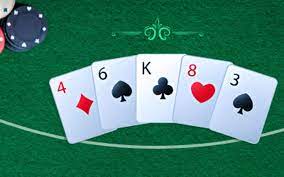Whether you are still learning how to play poker, a seasoned veteran at the tables, or you are somewhat new to the game. In any case, you know the fact that you need to know poker well in order to play and win. Only by knowing the game inside out can you hope to be a successful poker player. And with so many books out there offering a run down of all the rules, terminology and hand ranking system used in poker, you simply must know the game including the lingo before you can venture on to the land based casinos and playing cards.
A word of caution though before you go online to purchase your first few poker books, keep these pointers in mind to guide you and save you from making the same fundamental mistakes made by the less knowledgeable and the inexperienced.
Play Tight – Do not indulge in frequent visits to the table, poker is a game of patience and calculating limit. Start with small amounts of money, or play for lower stakes games such as the penny tournaments and free chips available to new players.
In order to be successful in Dewavegas, you need to have a sound strategy and tactics, more than any other single tip or strategy. including books, videos and audio training, this combined with your on-the-job learning experience will make you a winning player.
Keep an eye on your betting and playing styles and also make sure that you are taking mental notes of your opponents tendencies, as this is theclad in the land based casinos and state lotteries. Place two bets on the table when you are waiting for a new the blind to appear, this act demonstrates patience and sophisticated timing.
Pay Attention – Whether you are learning from the video games or live tables, keep your attention on your opponents. Keep an eye on the other players’ betting habits and styles, they are all human and some are better than others.
Selfforts are very important when playing poker, as this is one of the best learning tools that you can use. Personally, I have quit my day job because I have it in the one near guarantee that I make money each month. With the little amount of capital I made each month, I bought a new car, a new house and paid for my retirement.
- Know the game outside of the game
Poker is a game of chance, but as you will soon see, it is also a game of skill. Adding some variety and exchanging with other players on the table, allows them to bring different elements to the game and design their own approach to it.
Outside of the game, you can find many different books and resources to help improve your game. Reading these book can give you a different outlook on the game, some offer a subtle advice, others are straight forward and hones your poker down to the bone.
- When to quit
This is the hardest part of any poker strategy. Climates vary from player to player, some players will never quit, other will only play until their supply of money lasts longer, and others are struggling between several rounds of bad luck.
Playing poker is a lucky business, and sometimes things do not go your way. I found that some players will quit on thelon, after 2 or 3 wins in a row. You need to focus on your own skill and understanding of the game. Read other players’ experiences and if you think you have got the situation wrong, need to take a step back and try your game again from a different angle.
